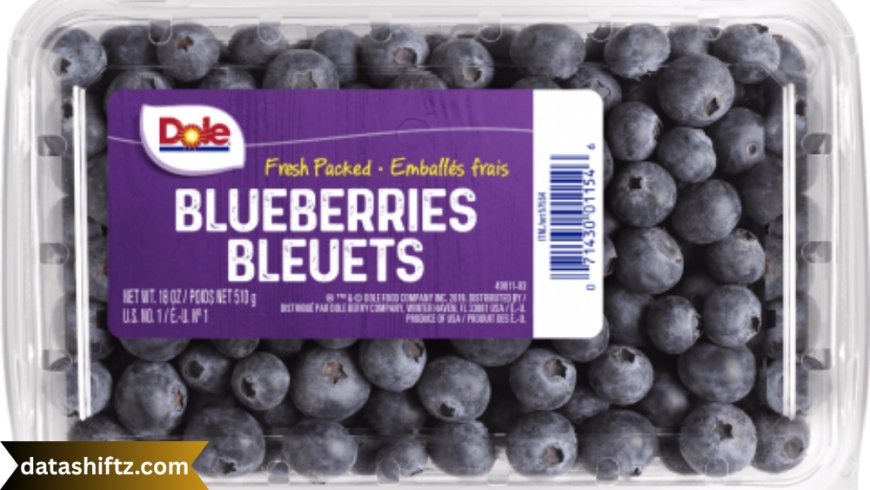FDA Blueberry Recall: Listeria Contamination Sparks Health Alert

Introduction
In a startling development affecting consumers nationwide, the U.S. Food and Drug Administration (FDA) has announced a blueberry recall due to potential Listeria monocytogenes contamination. This recall, which has impacted various brands and retail stores, has triggered health alerts and widespread concern among shoppers, particularly those who recently purchased fresh or frozen blueberries.
Listeria is a dangerous foodborne pathogen that can cause serious infections, especially in vulnerable populations such as pregnant women, newborns, the elderly, and individuals with weakened immune systems. This article will provide a comprehensive overview of the FDA blueberry recall, including affected products, symptoms of listeriosis, what consumers should do, and how food safety agencies are responding.
Understanding the FDA Recall: What Happened?
The Blueberry Recall Explained
The FDA issued a recall warning after routine testing revealed the presence of Listeria monocytogenes in packaged blueberries sold under multiple brand names. The affected blueberries were distributed nationwide and sold at various major retailers, including supermarkets and warehouse clubs.
The recall affects both fresh and frozen blueberries, and while no illnesses were confirmed at the time of the announcement, the FDA and CDC urged consumers to check their pantries and refrigerators immediately.
Key Details of the Recall
| Item | Details |
|---|---|
| Recalled Product | Fresh and frozen blueberries |
| Reason for Recall | Presence of Listeria monocytogenes |
| FDA Involvement | Issued recall notice and consumer warning |
| Affected Brands | Various private labels and national brands |
| Distribution | Nationwide (retailers, grocery chains, online vendors) |
| Recall Class | Class I (highest risk to health) |
| Status | Ongoing investigation and monitoring |
What Is Listeria Monocytogenes?
Understanding the Threat
Listeria monocytogenes is a type of bacteria that causes listeriosis, a serious infection that can result from consuming contaminated food. Unlike many other bacteria, Listeria can grow even in refrigerated environments, making it especially dangerous in perishable items like fruits, deli meats, and unpasteurized dairy products.
Key Facts About Listeria
| Aspect | Information |
|---|---|
| Scientific Name | Listeria monocytogenes |
| Disease Caused | Listeriosis |
| High-Risk Groups | Pregnant women, newborns, elderly, immunocompromised |
| Incubation Period | 1 to 4 weeks (can range from a few days to 70 days) |
| Symptoms | Fever, muscle aches, nausea, confusion, miscarriage (in pregnant women) |
| Fatality Rate | Around 20% in severe cases |
| Treatment | Antibiotics |
| Prevention | Proper refrigeration, washing produce, avoiding high-risk foods |
Common Symptoms of Listeriosis
If you’ve consumed any recalled blueberries and experience the following symptoms, seek medical attention:
-
Fever and chills
-
Muscle aches
-
Nausea or vomiting
-
Diarrhea
-
Headache
-
Confusion or disorientation
-
Stiff neck
-
Miscarriage or stillbirth (in pregnant women)
-
Loss of balance or convulsions
Brands and Products Affected
Products Under Recall
The FDA has listed multiple blueberry products—both fresh and frozen—that have tested positive for Listeria. These include products under various labels, including:
-
Private-label frozen blueberries sold at national grocery chains
-
Organic and conventional blueberries
-
Pre-packaged fruit medleys that include blueberries
Examples of Affected Products
| Brand Name | Product Description | Package Size | Expiration/Best By Dates |
|---|---|---|---|
| Nature’s Touch | Frozen Blueberries | 3 lb bag | Best by March 2026 |
| Great Value (Walmart) | Frozen Mixed Berries | 4 lb bag | Best by July 2025 |
| Dole | Blueberry Fruit Medley | 32 oz bag | Best by Sept 2025 |
| Trader Joe’s | Organic Blueberries | 12 oz container | Various sell-by dates |
| Costco/Kirkland | Organic Frozen Blueberries | 3 lb bag | Best by Feb 2026 |
What Should Consumers Do?
Steps to Take If You Purchased Recalled Blueberries
If you believe you’ve purchased any of the recalled blueberries, follow these steps immediately:
Consumer Action Plan
-
Check Product Codes and Labels – Compare lot numbers and best-by dates against the FDA recall list.
-
Do Not Eat the Product – Even if it looks or smells fine, discard it.
-
Dispose Safely – Seal the product in a bag before throwing it away to prevent exposure.
-
Clean Surfaces – Sanitize any kitchen tools, surfaces, or containers that came into contact with the berries.
-
Monitor for Symptoms – If you’ve consumed the product, watch for signs of listeriosis.
-
Contact a Healthcare Provider – Especially if pregnant, elderly, or immunocompromised.
-
Report to FDA – Use the FDA's MedWatch portal to report any adverse effects.
-
Contact the Store – Many retailers are offering refunds or replacements for recalled products.
Government and Industry Response
How the FDA and CDC Are Responding
Both the FDA and CDC are actively involved in investigating the source of the Listeria contamination. The companies involved have cooperated with authorities by initiating voluntary recalls and conducting internal audits.
Timeline of Events
| Date | Event |
|---|---|
| June 2025 | FDA detects Listeria in frozen blueberry samples |
| June 28, 2025 | Public recall announced via FDA.gov and social media |
| June 29, 2025 | CDC issues consumer alert for high-risk individuals |
| July 1, 2025 | Expanded recall includes additional retailers and products |
| Ongoing | Product testing, traceback investigations, and regulatory action |
Preventing Listeria at Home
Food Safety Tips for Consumers
While recalls serve as a warning, prevention remains the best defense. Practice safe food handling to reduce the risk of Listeria and other foodborne illnesses.
How to Minimize Risk
-
Keep refrigerators at or below 40°F (4°C)
-
Thoroughly wash all produce, including berries
-
Avoid cross-contamination with raw meats and dairy
-
Use separate cutting boards for produce and meat
-
Consume refrigerated leftovers within 3–4 days
-
Stay updated on food recalls via FDA.gov or food safety apps
-
Don’t eat soft cheeses or deli meats if you're pregnant unless heated
Conclusion
The FDA blueberry recall due to Listeria contamination is a critical reminder of the importance of food safety and vigilance. While no illnesses had been confirmed at the time of the recall, the potential for serious health outcomes—especially for vulnerable populations—makes awareness and precaution essential.
By staying informed, checking your pantry, and following recall guidelines, you can protect yourself and your family. In a food system as vast as America’s, such recalls are an unfortunate but necessary part of maintaining public health. As investigations continue, consumers are urged to follow updates from the FDA, CDC, and local health departments.





























